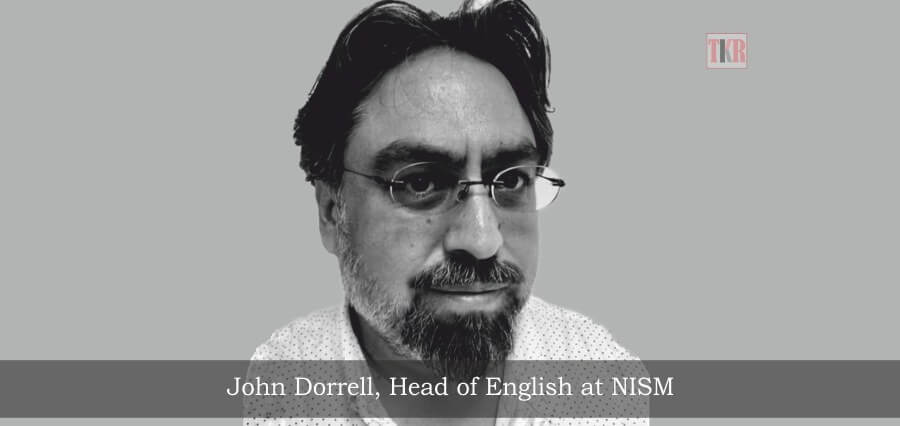If the principal of a school is the head then the library must surely be its heart. While each organ has a function and place, so too does every subject, delivering the curricula and making sure that the school body develops and sustains, yet without the heart this would be short lived. It is the heart that supplies the oxygen of consolidation, the nutrients of ideas and the simple pulse of discovering something new amongst the pages of an unexpected book.
All anatomical metaphors aside, a great way to understand a school is through the volumes in its library. What a good library offers is something beyond just reinforcing what we teach, but allows students to discover something new, something utterly unexpected, that they can take ownership of and make their own, not because a teacher told them, but because they want to.
The role of the school library has always been a contentious one, with budget cuts and staffing sometimes giving it a coronary (sorry, couldn’t resist!), and some schools losing the patient entirely. In 2017 children & authors Philip Pullman and Malorie Blackman, along with 148 others, wrote to the then UK Education Secretary Justine Greening, asking her to set up a national service and to safeguard the positions of qualified librarians in schools 1 . Such was the fear of losing libraries.
In some parts of California 30% of school libraries have closed 2, with e-readers and laptops replacing the books that once lined the shelves. This is the way of the future, it might be claimed, and after all, technology is the driving force behind education for tomorrow, it is the future and books are the past.
The problem is that to replace libraries with databases entirely misses the point of what a library does for a school, and for a child. Thankfully this is not a situation found at Nexus International school, Malaysia, nor is it one found in most international schools in the region, and I am continually in awe of how amazing international school libraries can be.
There is a good reason for this. International schools need fantastic physical libraries, not simply because they support learning, which they do, or because they aid literacy, but because it is through the library that students can discover the cultures of the world they are about to grow into.
As an English teacher and literacy co-coordinator I’ve spent years guiding colleagues on how to place literacy at the forefront of what we do. It’s an easy task, with teachers fully committed to helping young people improve how they understand their subject. But literacy is far more than words. It is more than simply recognizing language and expanding a vocabulary. Literacy is about feeding the cultural understanding of students beyond parochial expectations. Cultural literacy 3 is about allowing students discover avenues of thought they never existed. The problem with online libraries is that they can only recommend paths that have already been well trodden by others. A great library can offer directions students never knew existed. As teachers, and librarians, our job is to offer the compass and let the child draw the map.
This challenge of ‘cultural literacy’, as termed by E. D. Hirsch 4 is that in an international setting we are forced to choose which culture will be the foundation for our cultural diversity. Like the pigs in Orwell’s Animal Farm, ‘All animals are equal, but some animals are more equal than others’. In national schools this is no choice, but in international schools this choice must be clear and decisive. This is why we label school by country, British, Australian, and American. It is not simply about following the respective curriculum, but about establishing a cultural standard that the school follows.
So in English Literature there are certain fundamentals that cannot change. Shakespeare, Dickens, Brontë, Austen. Blake and a whole host of Romantic poets and war poets. There are others adjuncts of course, but this is the foundation of the Secondary level English cannon. Specifically English. Not Irish. Not American. Not Indian. For these are ‘other’ cultures, but the English foundation of Literature. It is upon this that we build.
So last week my Year 10 class explored one of those foundations. Romeo and Juliet. A play everyone thinks they know. In the space of an hour we had spoken the poetry of Shakespeare’s dialogue, encountered the studied violence Prokofiev’s ballet and explored the anime retelling of Hiroki Harada. They had begun to understand the role of Juliet in Elizabethan culture in contrast to a girl in modern Malaysia. All of this in a lesson.
This is where the library creates the pulse of a school. In understanding the universality of text students can begin to explore their own understanding far beyond what a lesson offers. In class we move onto the next part of the syllabus, but a great library offers more than just words. It offers the world.
About the Author
John Dorrell, Head of English at NISM, brings over thirty years of teaching experience to classroom. Throughout his career he has worked in challenging schools in London, with students of all abilities and background, led English departments in some of the largest schools in the city and helped develop subject leaders in other schools. He has also been a teacher trainer with Kings College for most of his career; with virtually every English department having someone he mentored to be a teacher.
While he is passionate about language, he firmly believes that cultural literacy is key to developing our understanding of the world, and our context within it. He is also a keen writer, with poetry nominated for the Hong Kong Proverse Prize 2019, with poetry about living in multi-cultural Asia. In his spare time he cooks, and teaches baking for our annual Challenge Week.
With a background as diverse as many of our learners, John leads with empathy for challenges that our learners will encounter in their education. John is married, with his partner also teaching in NISM Primary. He has a daughter studying English Literature at Kings College, following in the family tradition!









